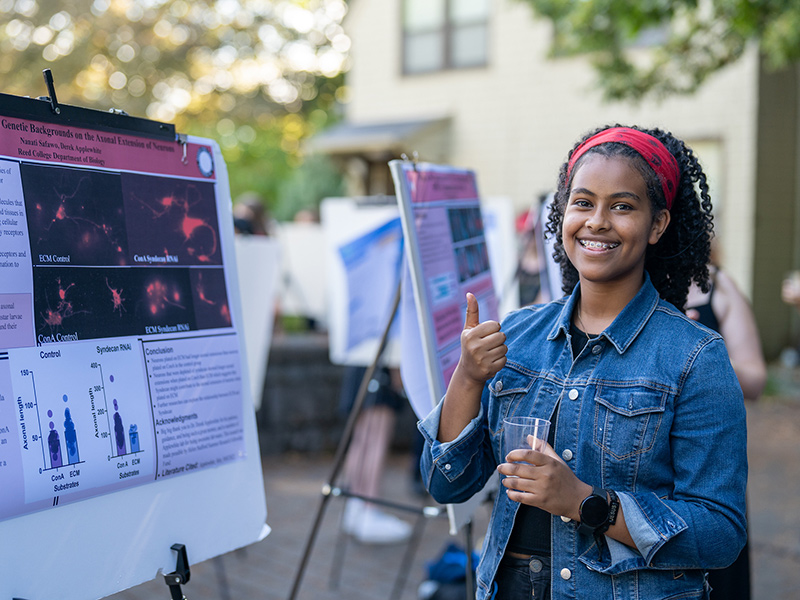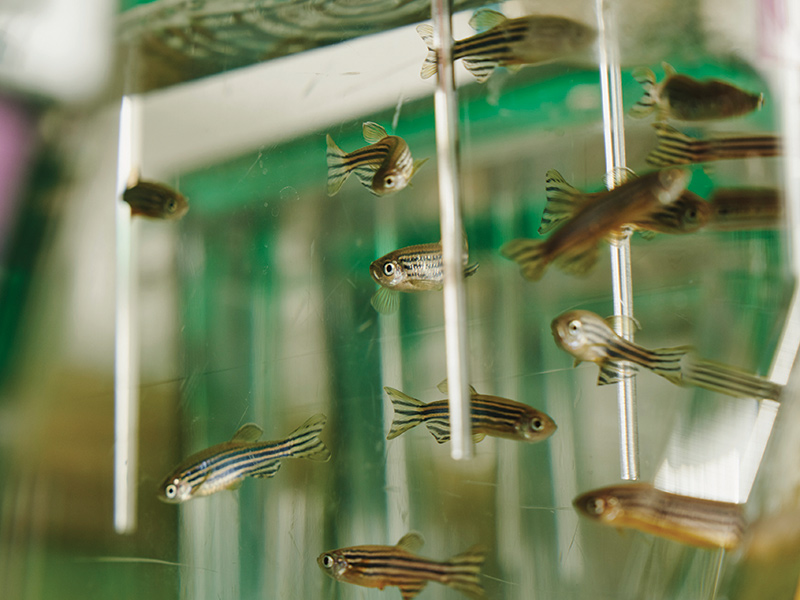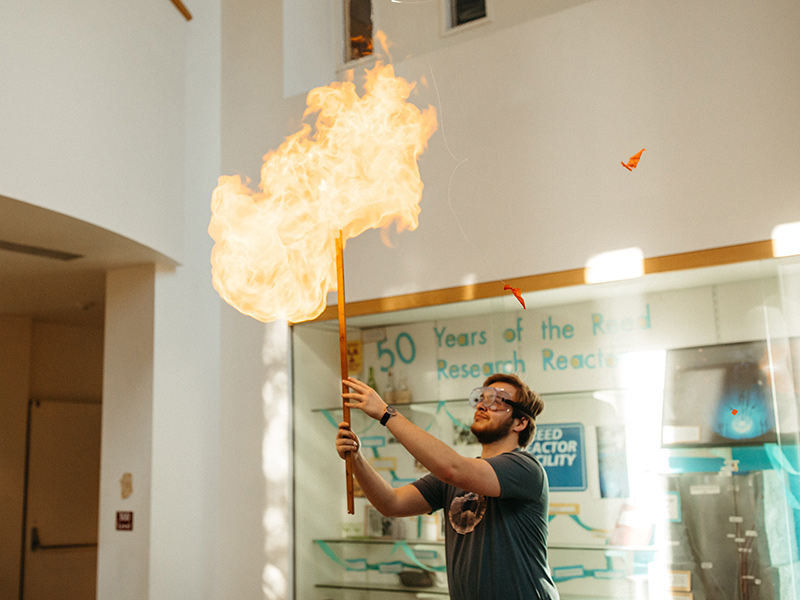What You’ll Study in the Premedical and Preveterinary Pathway
Obtain a liberal arts education at Reed College while preparing for a career in healthcare. Reed graduates have a high acceptance rate to medical school, where the breadth in educational programs offered by liberal arts colleges like Reed are valued. Your coursework at Reed College in the humanities and social sciences, as well as your nonacademic pursuits, are important considerations for admission.
Roadmap to the Premedical and Preveterinary Pathway at Reed
Earn your bachelor's degree at Reed in a program of interest to you. Gain the knowledge and skills, from problem-solving to research, that prepare you for medical school. Reed’s pre-health faculty, along with the Center for Life Beyond Reed, will help you plan your course selection, timeline, and application process, as well as provide you with interview and personal statement support.
Year One
Begin Your Reed Journey
In your first year, lay a strong foundation for your future studies. Take Topics in Biology I and II as your introductory biology courses. In addition, take mathematics classes, such as Calculus and Introduction to Probability and Statistics, that equip you for advanced research and data analysis.
Expand your horizons with Humanities 110, a cornerstone Reed course that studies how past and present human cultures shape our world. This interdisciplinary journey hones your critical thinking and writing skills while encouraging you to think beyond conventional academic boundaries.
Year Two
Delve Deeper into Lab Work
Dive deeper into your major, and take the chemistry classes required by most medical schools: Molecular Structure and Properties, Chemical Reactivity, and Organic Chemistry I and II. Some programs may require biochemistry or additional biology, and most programs recommend psychology and social science coursework.
Seek out research opportunities during your summer break. Collaborate with esteemed faculty on their projects or find outside opportunities to develop analytical and lab skills. Medical schools greatly value involvement and extracurriculars, and Reed offers funds to support your endeavors.
Year Three
Take the Junior Qualifying Exam
Continue your major courses, strengthening your expertise in your chosen field. Enroll in General Physics I and II. During your junior year, become acquainted with the specific admission and state residency requirements of the schools to which you might apply.
As the capstone of your bachelor’s degree at Reed, take the junior qualifying exam in your major department. Depending on your program, you may conduct research or answer a series of quantitative or essay questions.
Year Four
Write Your Senior Thesis
Prepare for and complete your senior thesis during your final year at Reed. The senior thesis marks the culmination of your academic career at Reed. Build on what you’ve learned over the past three years to explore a problem or answer a question that holds particular significance to you.
This significant achievement showcases your growth as a student and your passion for inquiry, preparing you to contribute confidently to healthcare.
Why Pursue the Premedical and Preveterinary Pathway at Reed
Broad Intellectual Exploration
At Reed, the path to health and medicine begins with broad intellectual exploration.
- A Reed education provides you with the opportunity to explore different modalities—different ways of looking at the world—which allows you to build the compassion and empathy valued by the fields of health and medicine.
- In small, conference-style classes and labs, you will make new discoveries for yourself, experience new challenges, and begin to form an understanding of why you want to go into health and medicine—and what you will bring to the profession. Reed supports the intellectual risk-taking necessary to find answers.
- Whether you major in biology, neuroscience, English, or history, you will gain genuine research experience, culminating in the senior thesis, that will prepare you for the rigors of medical school and other health programs. You will have the opportunity to be an integral part of the writing and presenting that are central to these fields, including being a coauthor on an abstract or paper.
Academic Guidance and Volunteer Opportunities
Reed’s pre-health faculty help you plan your course selection, timeline, and application process. Information sessions and panel discussions with alumni in the field help you understand what medical schools are looking for and give you a broader understanding of career options.
Oregon Health & Science University, a medical school and teaching hospital located just across the river, provides a range of volunteer and research opportunities. It’s also the number one employer of alumni in Portland.
Explore Applying to Medical School with the Center for Life Beyond Reed

Charting a Path to Medical School
Because of her dream of becoming a neurosurgeon, Nanati joined the pre-med track at Reed. She connected with a pre-med adviser who helped her enroll in the correct courses and access resources to keep her on the road to medical school.


